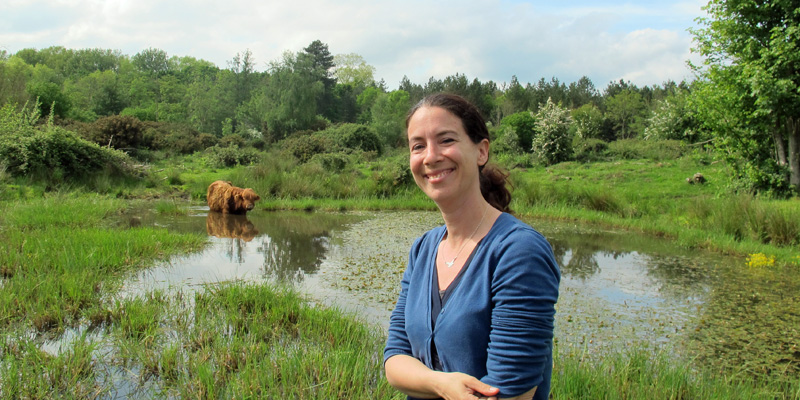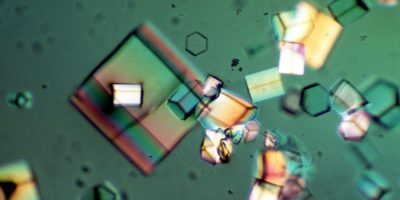Jenny Jaffe is a wildlife vet based at the Zoological Society of London. Her research interests are the disease and welfare risks associated with the translocation and / or reintroductions of wild animals, together with the epidemiology of infectious diseases in wild animal populations. She’s worked around the world in locations including Sierra Leone, Indonesia, Ecuador and the Netherlands.
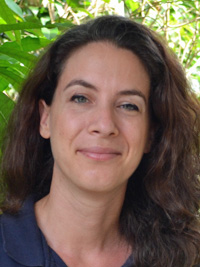
Jenny is speaking at the London Soapbox Art and Science event, which takes place on Saturday 27th May 2017 at 2pm at Queen’s Stone, Riverside walkway (by Gabriel’s Wharf). The title of her talk is: “Diseased dormice? How wildlife vets help reintroduce rare species!”
Living the dream as a wildlife veterinarian
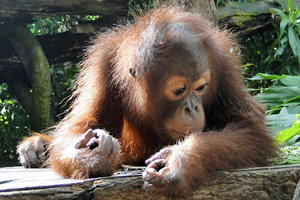
I’m now working as a research focused wildlife veterinarian at the Institute of Zoology (part of the Zoological Society of London). Initially, I just wanted to work with primates, and all through vet school that was my plan. You could say I have managed to ‘live the dream’ by working with monkeys in Ecuador, orangutans in Borneo, and chimps in Sierra Leone. However, the rescue centre in Ecuador did have all kinds of wildlife and my M.Sc. at the Royal Veterinary College / ZSL on wildlife health helped broaden my perspective.
So, when I decided to return to the UK after almost three years in Sierra Leone, I was fine with working on native British species. The fact that I had done my M.Sc. at ZSL a few years before meant my current boss already knew me and was confident I could do the job.
My role day to day
A typical day might involve doing a thorough post-mortem exam on a red kite, while teaching undergrad or M.Sc. students about bird pathology in the process.
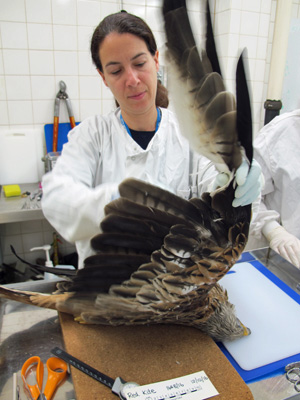
Writing up the reports, following up on microbiology, parasitology or histopathology and entering the information into the database is less glamourous, but still a crucial part of the job. In some cases, more advanced diagnostics like PCR [polymerase chain reaction] are developed and carried out in-house as well.
Liaising with our collaborators and the members of the public who submit animals to us is another important aspect of our work. If I am working on a DRA (disease risk analysis) for a new translocation, this will entail delving into the literature with regards to which pathogens might play a role in this particular species. A more memorable day could call for a field trip to do health exams on smooth snakes in the wild, or on dormice kept in quarantine before release.
The most rewarding part of my job
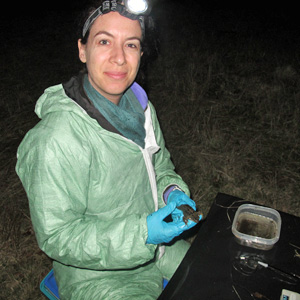
However, one of the things I enjoy is discovering new ways nasty bugs have adapted to spread more effectively in populations. Teaching students and seeing their understanding of a subject grow is also very rewarding.
The “feminisation of the veterinary profession”?
Veterinary science is one of the areas where there is a marked disbalance with more female students: in my year at vet school 85% of the students were female and I actually wrote a paper about the “feminisation of the veterinary profession” for one of my courses. It’s still roughly the same balance now amongst students. You do see that the balance is different amongst senior vets and senior academics – in my vet school there were only two female professors of twenty in total.
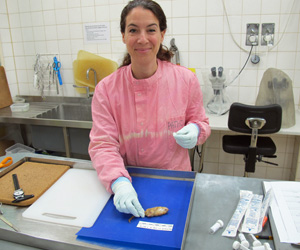
Soapbox Science and beyond
I will talk about the practical and research aspects related with wild animal reintroductions in Great Britain in an easily accessible way. Preparation will involve practising my talk and the use of props with a few people of different ages to see if they find it interesting!
Coming up for me at ZSL, in the short term, I will be continuing the work we are doing, but adapting it to new species being introduced. One new project involves the chequered skipper, a small butterfly that Butterfly Conservation is hoping to bring back to Rockingham Forest in Northamptonshire.
https://www.zsl.org/users/jenny-jaffe
https://twitter.com/Jenny_Jaffe
http://soapboxscience.org/soapbox-science-2017-london/

